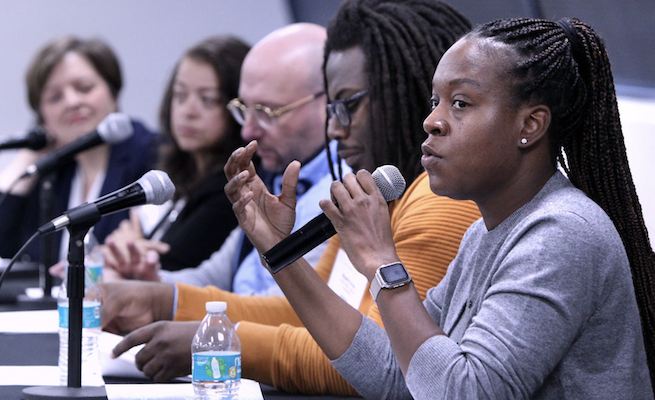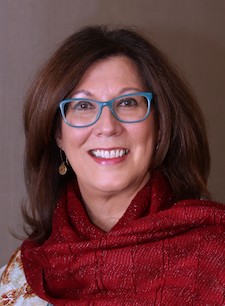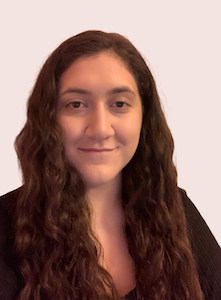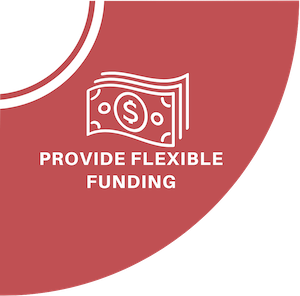Site Search
- resource provided by the Forum Network Knowledgebase.
Search Tip: Search with " " to find exact matches.
Inspiring Change through Leadership: Maximizing Philanthropic Impact
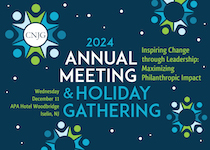 Wednesday, December 11, 2024 - 9:00am to 3:00pm
Wednesday, December 11, 2024 - 9:00am to 3:00pm
Luncheon, Keynote Presentation & Workshop
Location: APA Hotel Woodbridge, 120 Wood Ave S, Iselin, NJ 08830
The Council of New Jersey Grantmakers thanks everyone who attended our 2024 Annual Meeting & Holiday Gathering. On Wednesday, December 11, over 130 Council members and special guests gathered to celebrate the holiday season, welcome new CNJG members, convene our annual business meeting, and feature a dynamic discussion related to the vital work of philanthropy.
The Council’s 2024 Annual Meeting & Holiday Gathering was the place where CNJG members and New Jersey’s philanthropic community came together to share ideas about the important work they’re doing. It also provided a valuable opportunity to connect with colleagues.
This year’s theme, Inspiring Change through Leadership: Maximizing Philanthropic Impact, featured keynote speaker Amalia Brindis Delgado of the Panta Rhea Foundation.
The Annual Meeting included a workshop that explored the New Jersey Principles for Philanthropy. An overview of the Principles was presented, followed by a panel of fellow CNJG members who discussed how they are already using the Principles within their organizations. Attendees also had time to discuss how they could leverage the New Jersey Principles for Philanthropy to make changes within their own organizations.
Annual Meeting Photos
Theresa Jacks, President and CEO
Contact Theresa E. Jacks / (609) 414-7110 x805
Theresa Jacks joined the Council of New Jersey Grantmakers in 2008. A creative, versatile leader with over 25 years’ experience in government, nonprofit, and philanthropic sectors, she was appointed President and CEO in December 2022.As President and CEO, and previously Deputy Director and Manager of Advancement & Special Initiatives at the Council of New Jersey Grantmakers, Theresa has been instrumental in strengthening CNJG's leadership work, leading policy and advocacy efforts, building relationships with partners, developing and increasing funding to support operations and special projects, providing learning opportunities, and enhancing capacity and management processes. She has a deep knowledge of best practices in grantmaking.
Prior to joining the Council, Theresa served as Executive Director of the Whitesbog Preservation Trust, a nonprofit organization dedicated to restoring a 19th century historic village. Leading the operations of both the Trust and the ongoing restoration of the historic village included working closely with the Board of Trustees, effectively guiding board and committee initiatives, developing and coordinating educational and recreational programs, fundraising, member relations, ensuring long-term strategic and day-to-day management and administration of the organization, and building partnerships with the community.
Prior to launching a career in the nonprofit sector, Theresa worked in New Jersey state government for nearly twenty years in varying levels of management and leadership.
Theresa graduated from Central Michigan University with a Master of Science in Administration, and Rowan University with a Bachelor of Arts in Psychology. She graduated summa cum laude from both.
Kevin Callaghan, Newark Philanthropic Liaison
Contact Kevin Callaghan / (609) 414-7110 x804
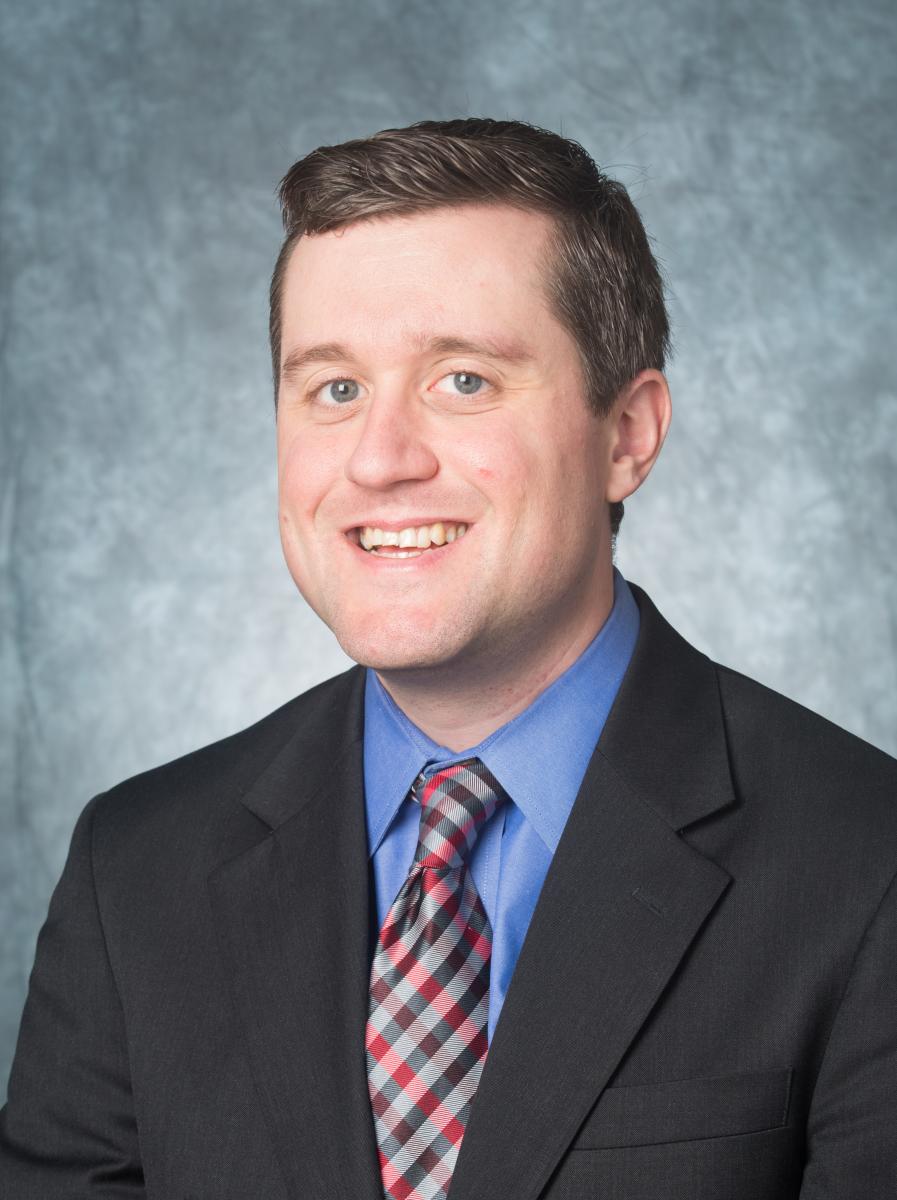
The Office of the Newark Philanthropic Liaison is an innovative collaboration between the Council of New Jersey Grantmakers and the City of Newark. Kevin began serving as the Newark Philanthropic Liaison on September 1, 2016.
In the role of Newark Philanthropic Liaison, a cabinet-level position, Kevin works directly with the Mayor and his senior cabinet to leverage private and government assets to support the Administration’s agenda in areas such as public safety, summer youth employment, workforce development, economic development, health and wellness, education and literacy, arts and culture, and neighborhood and place-based initiatives. The Office of the Newark Philanthropic Liaison also convenes and connects Newark and regional funding partners, Newark community-based organizations, and other key stakeholders by providing thought leadership, facilitating content and affinity groups, and raising awareness about critical issues facing the city.
Immediately prior to serving as the Newark Philanthropic Liaison, Callaghan was a Project Lead on the City’s Summer Youth Employment Program where he worked to implement system and program enhancements to one of the Mayor’s signature programs. Before this short-term appointment, he served for nearly five years as the Program Officer at the Foundation for Newark’s Future (FNF), the local arm of national philanthropic funding donated to the City of Newark to improve education opportunities for youth. Prior to joining the Foundation for Newark’s Future, Kevin worked for the federal government as a Special Assistant at the Overseas Private Investment Corporation in Washington D.C. and was a classroom teacher of middle school Social Studies in Philadelphia.
Callaghan holds a Bachelor’s Degree in Political Science and History from St. Peter’s University in Jersey City and a Master’s Degree in Urban Education from the University of Pennsylvania. Born and raised in New Jersey, Kevin is a proud resident of Newark.
Fortunata Cuomo, Development Associate
Contact Fortunata Cuomo / (609) 414-7110 x807
Fortunata Cuomo joined the Council of New Jersey Grantmakers in November 2024. A dedicated professional with a strong background in development, fundraising, and advocacy. Her education and previous work experiences have empowered her and allowed her to realize her passion for philanthropy.
She graduated from Fairleigh Dickinson University in Teaneck, New Jersey, in 2020, where she majored in History and minored in Global and Cultural Studies. During her time at university, she gained practical experience through internships at international organizations such as UNICEF USA and the United Nations Office for Partnerships. These early experiences helped shape her passion for justice and equality.
After completing her degree, Fortunata transitioned into the nonprofit sector, where she has been deeply involved in initiatives focused on empowerment, justice, and advocacy. She has worked with various organizations that aim to create positive change, providing strategic support and operational expertise to projects that empower communities.
Currently, Fortunata serves as the Development Associate at the Council of New Jersey Grantmakers, where she plays a pivotal role in supporting the organization’s partnership-building efforts and fundraising initiatives. She collaborates with stakeholders and partners to actualize common objectives and goals.
Outside of her professional life, Fortunata is an avid reader, traveler, and writer. Her love of learning extends beyond the workplace, as she seeks to broaden her perspective through literature and exploring new cultures.
Shakirat Odunsi, Manager of Communications
Contact Shakirat Odunsi / (609) 414-7110 x806
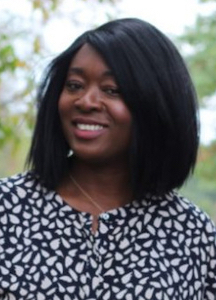
Shakirat Odunsi  joined the Council of New Jersey Grantmakers in February 2024 as the Manager of Communications. With over 20 years of B2B and B2C marketing experience, Shakirat will lead all aspects of the organization's digital communications strategy. She will promote the CNJG brand, its events, programs, and campaigns through innovative digital platforms and interactive communications. Shakirat will oversee CNJG's online presence, manage its website and social media channels, and lead the marketing efforts for CNJG's diverse services and offerings.
joined the Council of New Jersey Grantmakers in February 2024 as the Manager of Communications. With over 20 years of B2B and B2C marketing experience, Shakirat will lead all aspects of the organization's digital communications strategy. She will promote the CNJG brand, its events, programs, and campaigns through innovative digital platforms and interactive communications. Shakirat will oversee CNJG's online presence, manage its website and social media channels, and lead the marketing efforts for CNJG's diverse services and offerings.
Shakirat has a wealth of experience in the marketing and communications field, having worked on successful client-based projects in the past. She has collaborated with major brands, further enriching her marketing and strategic planning expertise. Shakirat's exposure to diverse industries and high-profile collaborations has honed her ability to navigate complex marketing landscapes and foster partnerships that drive success. She is excited to use her extensive background in marketing and communications to make a meaningful impact in the philanthropic sector. Shakirat has a track record of creative campaign execution and team leadership. She is deeply committed to volunteerism and is eager to apply her skills to promoting social good and community development.
Shakirat holds a Bachelor of Science degree from Rutgers, The State University of New Jersey.
Dana Schwartz, Office Manager
Contact Dana Schwartz / (609) 414-7110 x801
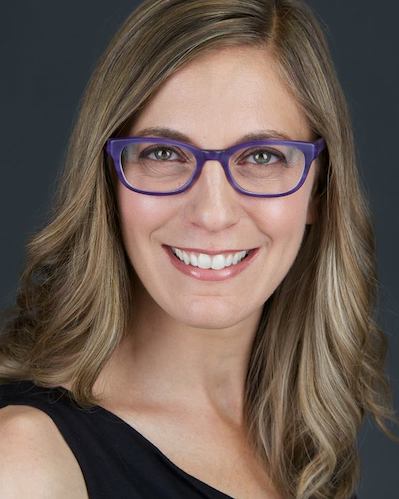
Dana Schwartz joined the Council of New Jersey Grantmakers in 2022. As office manager, her role is assisting the CEO with day-to-day operations, and attending to the needs of the CNJG Team, members, nonprofit partners, and others. She will also assist with program coordination and logistics, including for Signature events.
A lifelong reader and writer, Dana always knew she’d be an English major, and for several years after graduating college worked in the book publishing industry in Manhattan. Not long after receiving her Master’s in Creative Writing from Fairleigh Dickinson University, Dana spent the next decade at home raising her two children, and reading to them as often as they’d allow.
Since moving to New Hope, Pennsylvania in 2014, she has worked in education both as a volunteer and professional. First as a Girl Scout leader, and more recently as an instructional assistant in a multiple disabilities classroom. She is currently fulfilling her second term as School Board Director for her local district, New Hope-Solebury. She is excited to be working in the nonprofit sector in New Jersey, the state where she was born and raised.
Chanika Svetvilas, Manager of Programs and Learning
Contact Chanika Svetvilas / (609) 414-7110 x803

Chanika Svetvilas  ( [Chu-nē-kgha Swet-vē-las] (she/her/hers) joined the Council of New Jersey Grantmakers in 2023. As Manager of Programs and Learning, she organizes and manages programming for membership including signature events, affinity group gatherings, and educational programs that provide professional skill-building, issue-based knowledge development, as well as opportunities for networking.
( [Chu-nē-kgha Swet-vē-las] (she/her/hers) joined the Council of New Jersey Grantmakers in 2023. As Manager of Programs and Learning, she organizes and manages programming for membership including signature events, affinity group gatherings, and educational programs that provide professional skill-building, issue-based knowledge development, as well as opportunities for networking.
Prior to CNJG, Chanika worked in the nonprofit sector as a program coordinator for community based organizations as well as larger institutions and in higher education. She served as the Conference Manager for the International Sculpture Center, Program Coordinator for for the Charles B. Wang Center at Stony Brook University, and Grants Assistant for the Arts for the Doris Duke Charitable Foundation. Additionally, she has served as a grant panelist for several art councils including the New York State Council on the Arts. She was the co-founder of ThaiLinks, a collective dedicated to issues affecting Thai communities and co-founder of the Thai Takes film festival, its signature program presented in New York City.
Chanika is a practicing artist and curator. She holds a BS in Studio Art from Skidmore College, and an MFA in Interdisciplinary Arts from Goddard College. Chanika currently resides in Princeton Junction, NJ.
Craig Weinrich, Senior Director, Member Experience
Contact Craig Weinrich / (609) 414-7110 x802
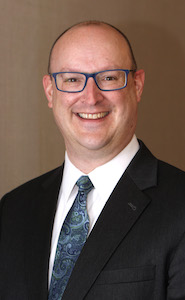
Craig Weinrich  joined the Council of New Jersey Grantmakers in 2014, as the Director of Member Services. Promoted to Senior Director, Member Experience in 2025, Craig oversees the recruitment and engagement with members, including communications and programs. During his tenure, Craig has also been CNJG’s Salesforce administrator, curated communications, developed and ran programs, researched, redesigned, and wrote the Philanthropy Benefits and Salary Survey, and maintained our website with our webmaster.
joined the Council of New Jersey Grantmakers in 2014, as the Director of Member Services. Promoted to Senior Director, Member Experience in 2025, Craig oversees the recruitment and engagement with members, including communications and programs. During his tenure, Craig has also been CNJG’s Salesforce administrator, curated communications, developed and ran programs, researched, redesigned, and wrote the Philanthropy Benefits and Salary Survey, and maintained our website with our webmaster.
Craig discovered the nonprofit sector through an intense desire to avoid working in the dining hall at Dickinson College by interning with the Eaken Piano Trio, where he learned about the world of arts administration. From there, he served as Development Directors for the Delaware Symphony (promoted from Development Assistant) and Springfield (MA) Symphony Orchestras, where he could even be found clad in the costume of their newly-created penguin mascot! Craig then moved to Nonprofit New York, a membership association of nonprofits in the New York City area, serving as their Membership, Outreach and IT Director for nine years. While there, he earned a nonprofit management certificate from Baruch College through the United Way Nonprofit Leadership Institute. Prior to joining CNJG, Craig served as the Membership Director for Maryland Nonprofits. At each organization, Craig has served as the “accidental techie.”
Craig is happy to be back in New Jersey for the third time. He grew up in Madison, lived in Bloomfield while working in NYC, and now resides in Hamilton. He served twice on church council at Living Waters Lutheran Church in Ringoes; graduated from Lead NJ in 2015 (go Green!); and in July 2018, married Kacy O’Brien. In 2022, he was appointed to serve on the Governor’s Council on Volunteerism and Community Service. In his spare time, he enjoys reading, playing board games, and hiking with Kacy and their dog, Clyde.
ADJUNCT STAFF
Mary Trimbach, Webmaster
Mary Trimbach joined CNJG as their Webmaster & Communications consultant in 2012, bringing 35 years of experience in the technology field to the position. In addition to managing the website and proving support to their communications work, Mary serves as liaison for CNJG to the Forum’s Knowledge Management Group.
Prior to joining CNJG, Mary worked in multiple sectors including non-profit, business and education providing her with a broad base of organizational knowledge. Her experience in the technology field ranges from programming, p.c. repair and support, and network management to her real love of system implementation and user training. In her career she has led in the start-up and support of several state and nationwide technology groups.
Mary holds a Bachelor’s degree in Information Technology from Aquinas College.
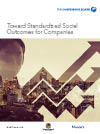
General Operating Support or General Project Support
Affirmation: Funds with the least restrictions are the most valuable
Nonprofits maintain and strengthen their organizations when their funds are unrestricted. Data shows flexible and reliable funding increases impact when nonprofit leaders have control over how funds flow to meet the needs of their constituents and internal operations, as demonstrated during the pandemic when funders released previously restricted funding. General operating support (GOS) funding signals trust in our partners and can open more honest dialogue about meeting the mutual goals of the funder and nonprofit. Funders who make project or program grants should trust the organization and provide flexible funding within a specific program.
Activities
• Over the short term, funders aim to shift their GOS activity by 30%. (30% more grants shift from program to GOS, or from fully restricted to negotiated GOS.)
• Provide grants as unrestricted organizational general operating support. The long-term ideal is for most, if not all, grants to be 100% GOS, unless a funder is legally precluded from doing otherwise.
• For project/program grants, 100% of the grant awarded is unrestricted (negotiated GOS), applying mission-based and mutually negotiated outcomes.
• Nonprofits articulate their organizational vision, strategies and intended outcomes to funders; funders understand the models of their grantee partners and learn from them how the grantee partner's work will lead to change.
• Trust nonprofit partners to know how to best apply their funding.
• Create a shared understanding of the meaning and importance of full-cost budgeting and real-cost funding.
Short-term Outcomes
• 70% of funders are shifting some of their distribution to making general operating support grants.
• 100% of program/project grants are designated unrestricted.
Long-term Outcomes
• 100% of all grants are made without restrictions, unless limited by covenant or donor wishes in the case of community foundations.
• All nonprofits can clearly articulate their vision, strategies, outcomes, and business models to funders; and funders understand them and trust them to know how best to use their funds.
How to Begin Doing Good Better on Flexibility Learning Opportunities
• Why aren’t some funders planning to award GOS or negotiate GOS?
• Ask funders: If you participated in CNJG’s 2022 funder survey and indicated that you planned to initiate GOS, have you done so? • Why are some grants restricted?
• What would it take for funders to change?
Pre-Work
• Seek and share learning opportunities for funders, prioritizing education of foundation boards, to address the barriers to awarding GOS and understand how restricted funding undermines financial sustainability.
• For funders who already regularly provide GOS funding, educate/advocate for others to do the same.
• Learn how GOS/negotiated GOS strengthens grantee partners and the multiple ways they can use and evaluate GOS. Actively seek insights from nonprofits to reinforce the message about GOS in their funding partnerships.
• As an incremental step for funders that are not receptive to GOS, provide education about negotiated general programming support (flexible funding within a mutually agreed-upon program area, as opposed to organization-wide GOS).
• Share promising practices on evaluation of GOS and negotiated GO
Grantmaking at the Crossroads is a workbook designed to provide foundations with a new grantmaking methodology that works at the intersection of place, population, and issue. It offers a pathway to greater inclusion of communities that are often excluded or marginalized by foundation funding and enables foundations to maintain their focus and priorities while expanding their reach and effectiveness.
The Grand Rapids Community Foundation and the Kalamazoo Community Foundation volunteered to be laboratories for Grantmaking at the Crossroads and have been critical informants for this workbook. Each of these foundations holds an unwavering commitment to ongoing learning; this publication would not have happened without their support and engagement and the financial support of the Arcus Foundation.
When considering how to improve health outcomes for low-income individuals, most people think about providing access to good medical care and keeping the cost of that care as low as possible. What people rarely think about is the connection between good health and quality affordable housing.
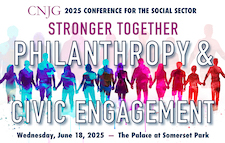
Date: Wednesday, June 18
Time: 8:00 a.m. to 4:00 p.m.
Location
The Palace at Somerset Park
333 Davidson Ave, Somerset, NJ
CNJG’s 2025 Conference for the Social Sector—Stronger Together: Philanthropy and Civic Engagement, features recognized thought leaders, national and regional experts, and community leaders for a full day of connection, shared exploration, thoughtful discussion, and side-by-side learning with philanthropic and nonprofit colleagues.
This year's conference will examine how funders and nonprofits can work together to address and increase civic engagement, focusing on several key areas, including advocacy, local media, participatory budgeting, guaranteed income, public-private partnerships, the arts, and youth education through the lens of civic participation.
Civic engagement is about more than voting or elections. As our colleagues at Philanthropy for Active Civic Engagement (PACE) define it:
“Civic engagement is the process of helping people be active participants in building and strengthening their communities, whether defined as a place or a shared identity or interest. It’s a spectrum of ways people can participate in self-governance, from interactions with government to voluntary associations, and everything in between.”
The opportunity for local communities to convene, learn together, and form partnerships can lead to meaningful action and increased public participation. Let’s explore how philanthropy can impact the social sector by buttressing these connections.
CNJG represents over 130 of NJ’s leading philanthropic organizations – foundations, corporations, and donors. Each year, we present a large-format meeting to include nonprofit partners to discuss big picture topics fostering learning and dialogue between funders and nonprofits.
| Agenda | |
| 8:00 - 9:00 am |
Registration/Breakfast/Networking/Resource Marketplace |
| 9:00 - 10:00 am | |
| 10:00 - 10:15 am |
Networking & Resource Marketplace |
| 10:15 - 11:30 am |
Morning Sessions: The Future of Civic Engagement |
| 11:30 - 11:45 am |
Networking & Resource Marketplace |
| 11:45 - 1:30 pm | |
| 1:30 - 1:45 pm |
Networking & Resource Marketplace |
| 1:45 - 3:00 pm |
Afternoon Sessions: Mobilizing New Jersey |
| 3:00 - 4:00 pm |
Ice Cream Reception/Networking/Resource Marketplace |
Conference Photos
CNJG’s community foundation services (through the United Philanthropy Forum) breakdown into three categories:
1. a national listserv for CEOs
2. two in-person boot camp trainings
3. discount on the On-Line CF Express Training
National Listserv for Community Foundation CEOs
CNJG’s listserve for Community Foundation CEOs connects to a national listserv for the CEOs of community foundations. This active listserve allows community foundation CEOs to communicate easily via email with community foundation CEOs from across the country, to pose questions, engage in conversations and more. The service is being made available to our community foundations members as a benefit of your membership with CNJG and is operated by the Untied Philanthropy Forum, which is CNJG’s national network.
If you are interested in participating in this national community foundation listserve, please contact Craig Weinrich.
Community Foundation Boot Camps
The United Philanthropy Forum offers two or more Community Foundation Boot Camps a year that are made available to CNJG members at the member rate as a benefit of CNJG membership. The two-day Community Foundation Boot Camp program offers a comprehensive overview of the structure and operations of a community foundation. The program is an ideal in-depth introduction to community foundations for new community foundation staff, community foundation board members, or more experienced community foundation staff looking for a good refresher.
On-Line CF Express Training
The Forum is partnering with Kansas Association of Community Foundations (KACF) to offer a $400 discount on KACF’s On-Line CF Express Training. The online training and certificate program focuses on core essentials over a 15-module series that covers nearly every aspect of community foundation work: from asset development and quality grants programs design to fiduciary and policy matters. Plus, enjoy 24-hour-access to the easy-to-navigate short (5-15 min) modules in any order from the comfort of a home or an office, in private, or as a group training.
Watch the CF Express Training Promo Video and view a sample module (password: mod15) to learn more. To take advantage of the discount, sign-up at https://cfexpresstraining.com and enter discount code: Forum2018. You can also reference the following attachments for more details.
Nonprofit Finance Fund's Annual Survey chronicles the challenges facing the nonprofit sector and calls out some of the targeted investments we can start to agree on as a society to salvage the investment we have collectively made in our social infrastructure. We believe that a coordinated intervention now will not only better prepare us for inevitable future economic crises; it can lead to a happier, healthier community for us all.
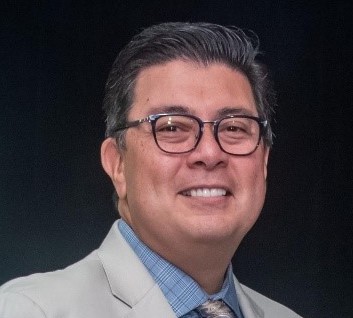
New Jersey’s philanthropic community mourns the loss of Jeffery Vega, who passed away January 28.
Jeff joined CNJG’s Board in 2016, and during his tenure served as First Vice Chair and Board Chair, and participated on multiple committees, affinity groups, and co-chaired the Trenton Area and Mercer County Funders affinity group. Jeff shaped and cultivated the direction and focus of CNJG through his supportive and proactive leadership. His direction and guidance during the pandemic helped CNJG not only stay the course, but continue to grow and thrive.
“Working with Jeff was a joy and a privilege,” CNJG President and CEO Theresa Jacks said. “Jeff guided us through the pandemic, a leadership transition, a strategic planning process, the approval of equity principles, and CNJG’s first-ever policy agenda with a steady hand, fierce commitment to equity, unwavering dedication to the membership, and the perfect combination of visionary thinking, wisdom, and kindness.”
His CNJG legacy includes the 2023 Strategic Plan, the creation of the Racial Equity Committee, CNJG’s first policy agenda, the New Jersey Principles for Philanthropy, and leading a dynamic and diverse board.
Jeff was the President and CEO of Princeton Area Community Foundation since 2015. Before joining PACF, Jeff was President of New Brunswick Tomorrow.
You can read more at the Princeton Area Community Foundation’s tribute page and announcement of Jeff’s passing.
CNJG's Storify content from their Signature Events.

Retributing Power by Simplifying and Streamlining Processes
Sisters of St. Joseph Health & Wellness Foundation
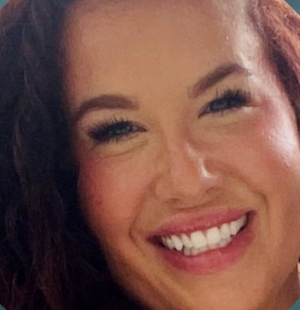 When Beth Collins joined the Sisters of St. Joseph Health and Wellness Foundation as the new Executive Director, she knew that the foundation could be doing more to support its nonprofit ecosystem. With a background in direct service, Beth remembered when she was on the other side of the funding relationship – sometimes spending hours writing lengthy application materials or digging up data to meet reporting requirements, all while juggling her never-ending to-do list. By aligning the values of Trust-Based Philanthropy to the virtues and mission of the Sisters of St. Joseph, she has catalyzed a shift toward redistributing power in its community partnerships.
When Beth Collins joined the Sisters of St. Joseph Health and Wellness Foundation as the new Executive Director, she knew that the foundation could be doing more to support its nonprofit ecosystem. With a background in direct service, Beth remembered when she was on the other side of the funding relationship – sometimes spending hours writing lengthy application materials or digging up data to meet reporting requirements, all while juggling her never-ending to-do list. By aligning the values of Trust-Based Philanthropy to the virtues and mission of the Sisters of St. Joseph, she has catalyzed a shift toward redistributing power in its community partnerships.
This power shift began when Beth started a conversation about values with the foundation board. By approaching the board with curiosity and bringing the voice of the community into the conversation, she set the tone for trust, openness, and an ongoing dialogue. The Foundation is now working toward fully embodying its values in its practices. The Sisters of St. Joseph have expanded their general operating support portfolio, shifted the bulk of the application process from applicants to the Foundation, replaced written reports with honest conversations, and created more opportunities for the public to provide feedback and engage in candid dialogue with the board. Focusing on only the essential information for applications and reporting has enabled staff to redirect their time and energy to develop wholehearted relationships with community partners. By starting with the why, Beth is leading the Foundation toward a clear vision for the how: “Trust Based Philanthropy is about humility – at Sisters of St. Joseph, we recognize that we are just one piece of the puzzle – and we are encouraging others to think outside of themselves.”
Offering Support Beyond the Check
Liberty Hill Foundation
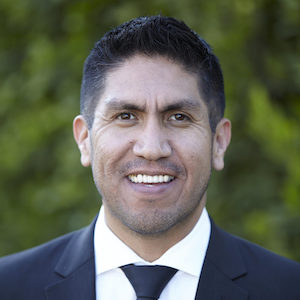 A community-funded foundation since day 1, Trust Based Philanthropy is at the core of the Liberty Hill Foundation. Centered on social justice campaigns, research, and policy initiatives designed to drive systemic change, Liberty Hill Foundation refers to itself as a "Laboratory for Social Change Philanthropy”. When Julio Marcial stepped into the role of Senior Vice President of Programs, he looked beyond the funding and considered the myriad of ways the foundation can support community partners beyond the check by connecting them to other funders and donors. As a member of several pooled funds in Los Angeles, Liberty Hill Foundation proactively seeks opportunities that will benefit their community partners. The Foundation has introduced many funders in their circle to Trust Based Philanthropy principles – this has sparked several conversations at other foundations serving Los Angeles county, several of which have since shifted their practices. Beyond private and public foundations, Marcial advocates for a push to Trust Based Philanthropy in California state funding agencies.
A community-funded foundation since day 1, Trust Based Philanthropy is at the core of the Liberty Hill Foundation. Centered on social justice campaigns, research, and policy initiatives designed to drive systemic change, Liberty Hill Foundation refers to itself as a "Laboratory for Social Change Philanthropy”. When Julio Marcial stepped into the role of Senior Vice President of Programs, he looked beyond the funding and considered the myriad of ways the foundation can support community partners beyond the check by connecting them to other funders and donors. As a member of several pooled funds in Los Angeles, Liberty Hill Foundation proactively seeks opportunities that will benefit their community partners. The Foundation has introduced many funders in their circle to Trust Based Philanthropy principles – this has sparked several conversations at other foundations serving Los Angeles county, several of which have since shifted their practices. Beyond private and public foundations, Marcial advocates for a push to Trust Based Philanthropy in California state funding agencies.
The Liberty Hill Foundation embraces itself as a fundraiser for its nonprofit partners and its responsibility for the Los Angeles community. The Foundation raises the funds and opens doors for nonprofits and then “steps out of the way,” says Julio. According to Julio, partnerships are the key to maximizing trust and impact in the community: “We can't do this without our partners, peers, and donors. We need to call each other out – and to call each other in.”
Leading with Trust, Transparency, and Responsiveness
Headwaters Foundation
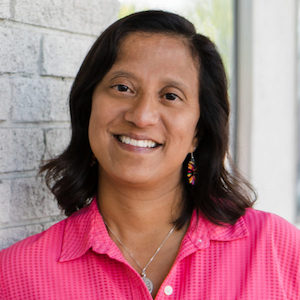 Headwaters Foundation is a health-conversion foundation working side by side with the community to achieve better outcomes towards a healthy and thriving Western Montana. Brenda Solorzano, CEO of Headwaters, has been at the helm of the foundation since its inception in 2017. With over 20 years of experience in traditional philanthropy, Brenda began asking big questions about standard philanthropic practices. Brenda is especially focused on tapping into the collective knowledge and experience of the community to create impactful systems. Early on in her tenure as CEO, Brenda shared her vision for Trust Based Philanthropy with the foundation’s board and they have supported her as she’s stewarded the foundation through its strategic planning process.
Headwaters Foundation is a health-conversion foundation working side by side with the community to achieve better outcomes towards a healthy and thriving Western Montana. Brenda Solorzano, CEO of Headwaters, has been at the helm of the foundation since its inception in 2017. With over 20 years of experience in traditional philanthropy, Brenda began asking big questions about standard philanthropic practices. Brenda is especially focused on tapping into the collective knowledge and experience of the community to create impactful systems. Early on in her tenure as CEO, Brenda shared her vision for Trust Based Philanthropy with the foundation’s board and they have supported her as she’s stewarded the foundation through its strategic planning process.
Community input and feedback was important to Brenda. With the board’s support, she took this a step further by engaging the community as co-creators and decision-makers. To accomplish this, Brenda invited 600 nonprofit representatives across the state to the table to share their thoughts. Brenda asked each person 2 questions: “If you were in my seat, what do you think the foundation should prioritize?” and “What’s the biggest challenge in your work?” By creating a space for open dialogue, Brenda took the pulse of the real challenges in Western Montana communities.
Soon after her introduction to Western Montana’s nonprofit sector, Brenda called on the community again to help design the foundation’s strategic focus. She hosted a series of public community meetings in each of Montana’s 15 counties. Headwaters facilitated a design-thinking process for members to discuss their challenges and co-create solutions. Two key strategies emerged: upstream systems and social change determinants prioritizing children and Indigenous populations.
Brenda engaged the community as decision-makers as Headwaters explored partner organizations for the foundation’s child thriving portfolio. The community nominated and voted on non-profit partners in a live meeting. This was a new approach and even some staff were nervous about the outcome. Headwaters proudly reports that a few years later, many of the organizations selected have grown to become blossoming collaborations. Grounded in Trust-Based principles since its inception, Headwaters is an exemplar of what it means to Do Good Better. Brenda says, “Trust Based Philanthropy is about starting from a place of trust.”
Co-Creating Goals by Soliciting and Acting on Feedback
T. Rowe Price Foundation
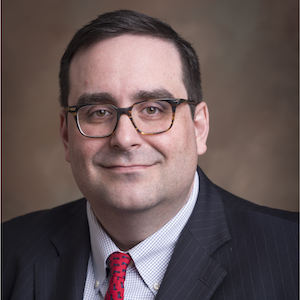 When John Brothers joined T. Rowe Price Foundation as President in 2015, the Foundation’s home in Baltimore was in the midst of social unrest following the tragic murder of Freddie Gray, a 25-year old Black man arrested over his legal possession of a knife and sustained injuries while being transported by the Baltimore Police. The T. Rowe Price Foundation recognized that it was a critical time to pause and listen to the Baltimore community. Within months of joining the Foundation, John Brothers and the Foundation team began an ongoing dialogue within Baltimore – in homes, places of worship, and community spaces. By leaning into the expertise and experience of community partners, John developed the T. Rowe Price’s Theory of Philanthropy, which mirrors principles to those similar to Trust-Based Philanthropy.
When John Brothers joined T. Rowe Price Foundation as President in 2015, the Foundation’s home in Baltimore was in the midst of social unrest following the tragic murder of Freddie Gray, a 25-year old Black man arrested over his legal possession of a knife and sustained injuries while being transported by the Baltimore Police. The T. Rowe Price Foundation recognized that it was a critical time to pause and listen to the Baltimore community. Within months of joining the Foundation, John Brothers and the Foundation team began an ongoing dialogue within Baltimore – in homes, places of worship, and community spaces. By leaning into the expertise and experience of community partners, John developed the T. Rowe Price’s Theory of Philanthropy, which mirrors principles to those similar to Trust-Based Philanthropy.
T. Rowe Price’s Theory of Philanthropy centers long-term impact by strategic investments in areas identified in partnership by those who live and work within the Baltimore community. The Foundation and community partners co-define a vision for success and community partners are trusted with the agency to make decisions in pursuit of shared goals. T. Rowe Price’s Theory of Philanthropy is considered a distinct model among other large corporate foundations. When asked how John managed to gain board consensus on this novel approach, he characterized the Theory of Philanthropy with a business metaphor: “People don’t buy stocks for an iPhone – they invest in Apple.” The Foundation focuses on supporting nonprofit organizations in a holistic way. By listening to the community early on, John shifted the Foundation’s approach from funding a variety of important, yet disconnected, programs to a co-creating strategic investment of capital and other support on more focused efforts that will have a lasting impact. To learn more please visit troweprice.com/foundation.
Doing Good Better, a partnership of the Council of New Jersey Grantmakers and the New Jersey Center for Nonprofits, is a community of funders and nonprofits taking action against the power imbalances and racial inequities in philanthropy, nonprofits, and government.

